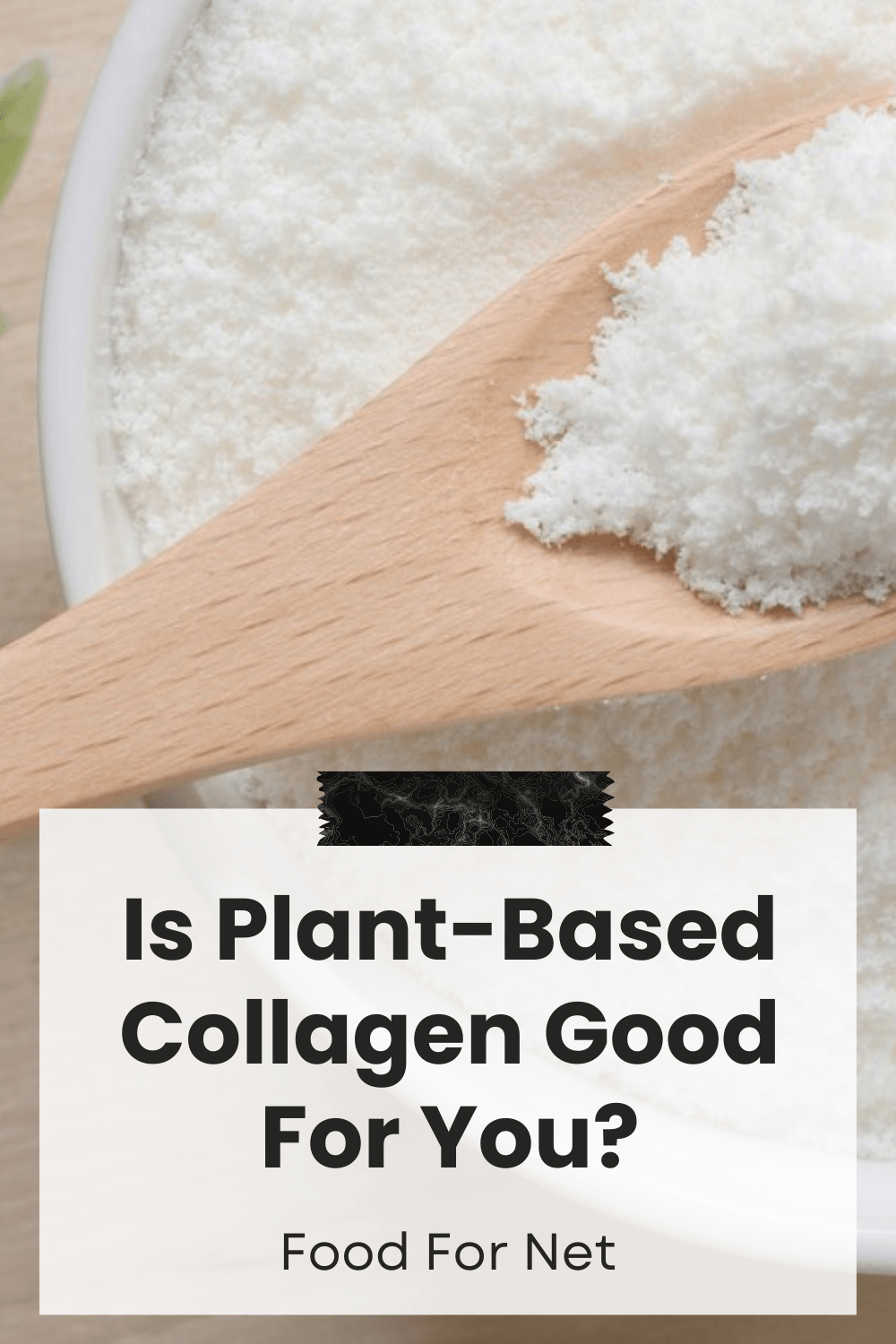
Collagen is an essential structural protein in our bodies, playing vital roles in our skin, muscles, bones, and many other areas. While our bodies can make collagen themselves, collagen supplements, collagen protein powder, and collagen-based creams are becoming increasingly popular.
Such products could provide extra collagen, leading to benefits for your skin, hair, nails, and more. They may be even more powerful than using collagen creams, as collagen is a large protein and isn’t easily absorbed through the skin.
For vegans, plant based collagen supplements seem like a natural choice. But, is plant based collagen good for you? Does it offer the same benefits as animal-based collagen?
It’s easy to assume that plant based collagen is healthier, cleaner, and more ethical than collagen than animals. The problem is that plants don’t make collagen, so what’s going on?
Is Plant Based Collagen Good For You?
- Can Collagen Be Vegan?
- Examples of Plant Based Collagen Products
- Do Collagen Boosters Work?
- The Risks Of Plant Based Collagen Supplements
- Should You Use Collagen Boosters?
- Final Thoughts
Can Collagen Be Vegan?

Collagen is a structural protein. It’s mostly found in bones, skin, ligaments, and similar locations. As such, collagen supplements mostly get the protein from beef and chicken.
Plant-based products can’t do this, so most of them act as collagen boosters instead. This means they contain a selection of natural ingredients designed to boost your collagen production and/or reduce the rate of collagen breakdown in your body.
For example, Garden of Life’s Organic Plant Collagen Builder includes ingredients like turmeric root, green tea extract, annatto, parsley, rooibos extract, and many others. The one from Future Kind relies on grape seed extract, aloe vera extract, resveratrol, and a variety of individual amino acids, vitamins, and minerals.
Such products are easy to spot, as they’re normally marketed as collagen boosters, collagen builders, or something similar.
Vegan collagen is theoretically possible. Researchers are focusing on genetically modifying bacteria or yeast so that they produce collagen. This type of approach could lead to inexpensive collagen that doesn’t rely on animals (making it much more humane).
While the idea is powerful, true vegan protein is still in the early phase of development. Much more work is needed before we see such supplements being regularly sold in stores.
For the moment then, vegans need to focus on collagen boosters instead.
Examples Of Plant Based Collagen Products
Before we talk about the health effects of collagen boosters, let’s look at some specific examples. This is the easiest way to see the differences between the products, differences that are directly relevant for your health.
Sunwarrior Collagen Building Protein Peptides
Sunwarrior has many powerful plant-based products, including this collagen building powder. There are six flavors to choose from, which all include around 14 grams of protein, a selection of vitamins and minerals, a beauty blend (including pea protein, an organic greens blend, mushroom extract, and more), hyaluronic acid, and caffeine.
The hyaluronic acid is particularly interesting. This is something our bodies produce naturally, but production tends to decrease with age. Getting extra in your diet could help, especially as it has been linked to collagen production.
The extra protein in the product may be useful too, as protein provides you with amino acids. This also means that the powder doubles as a protein supplement, giving it some extra benefits.
Oziva Plant Based Collagen Builder
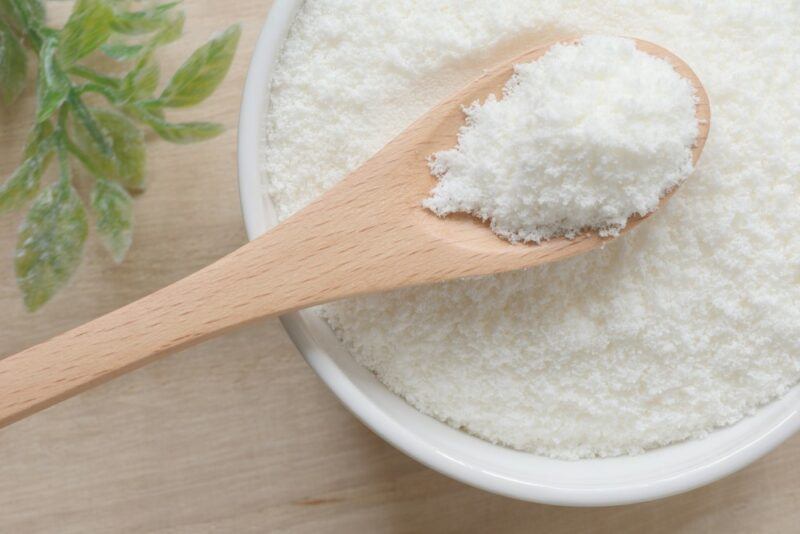
This product takes a different approach by relying heavily on plant-based powders, like spirulina, green tea extract, guava powder, and sea buckthorn. This gives you a low protein product that doesn’t contain many amino acids either.
The approach means the powder is less likely to promote collagen production than the previous example. Still, in the right context, it might have some benefits.
Future Kind
The Vegan Collagen Booster from Future Kind isn’t a protein supplement like the Sunwarrior product, but it does offer some amino acids, particularly glycine, lysine, and proline. These three are the ones used in collagen production.
There are some key nutrients present too, along with a few different plant extracts. The product isn’t as loaded with ingredients as some of the others out there. Still, the ingredients it contains are the most likely ones to help with collagen production, making this a decent product.
Do Collagen Boosters Work?
Collagen boosters vary dramatically. However, many of them rely on a mix of vitamins and minerals. Amino acids are common as well, along with herbs and plant extracts that are thought to boost collagen production.
Let’s see how these different ingredients influence your health.
The Effect Of The Nutritional Ingredients
The amino acids and nutrients are important, as your body needs these to create collagen. Vitamin C and zinc are particularly important nutrients, while proline, glycine, and lysine are the most relevant amino acids.
There’s a catch though. Increasing your intake of these nutrients will only help with collagen production if you’re not getting enough of them. If your diet is already rich in vitamins, minerals, and amino acids, getting more won’t suddenly help your collagen production.
The Effect Of Extracts
Herbs, plant extracts, mushroom powder, superfoods, and the like are often added to collagen boosters as well. These aren’t directly used to produce collagen at all.
Instead, they may change the rate of collagen production or collagen breakdown. They may even encourage your body to produce more collagen than it would otherwise.
The key word here is may. Some of the ingredients have been studied and show the potential to help with collagen production (like kacip fatimah), due to their phytochemicals. Other ingredients are included because they might help or because they have other benefits.
However, the research is often in its early stages. Often we know that an ingredient has the potential to help with collagen production, but we’re not certain whether there is a noticeable effect in humans.
Claims Versus Reality

While some of the ingredients in collagen boosters may be helpful on their own, there’s no guarantee that the boosters themselves help with your collagen.
For one thing, most products contain many ingredients in varying amounts. The levels of some of these may be far too low to have any practical effect on collagen production.
Also, even if the ingredients could theoretically help, there’s no guarantee that they will. Collagen production is influenced by a variety of factors. Your diet is only one part of the equation.
Are There Other Benefits?
Many of the ingredients used in collagen boosters could offer other benefits. For example, the herb kacip fatimah is included in some boosters and is often used as a supplement for women to help with sexual health or menopause symptoms.
Your supplement might contain dozens of different herbal ingredients, which further increases the chance for extra benefits.
Still… despite the popularity of herbs as supplements and their history in traditional medicine, there’s a lot we don’t know about their benefits and risks. Some of the claims may well be overblown.
Plus, supplements that contain many ingredients probably only contain small amounts of most of them. If this is the case, you mightn’t be getting enough of the herb to see a benefit.
The simple answer is that no one knows. You could see some unexpected benefits from vegan collagen supplements or you might see nothing at all.
The Risks Of Plant Based Collagen Supplements
So then, plant based collagen supplements aren’t as powerful as they first seem. They might not offer any benefits at all for most people.
If this was the only issue, then the products wouldn’t be such a big deal. You could try them out for a while, see if you get benefits, then stop if you don’t. You might waste a little money and time in the process, but that’s it.
Unfortunately, there’s more to it than that. In some situations, these supplements might actually harm your health.
Contaminated Products
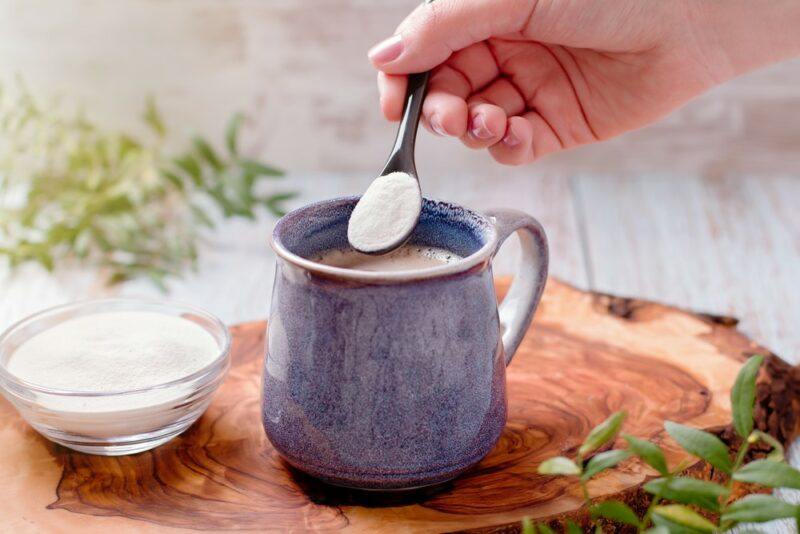
Contamination is one of the biggest issues with supplements. The products can easily get contaminated with heavy metals and other concerning chemicals, ones that can increase your risk of cancer and lead to various health issues.
The amount of contamination can be scary sometimes, with some products going over safe limits for arsenic, lead, and mercury. There’s also the chance for contamination from fungi and bacteria, which leads to further health problems.
Now, in fairness, almost anything you eat can be contaminated. That’s why food hygiene practices are so important and why even highly reliable companies sometimes recall their products.
Supplements, however, are more concerning than most other products. There’s a shocking lack of oversight in the supplement industry, as companies don’t need to prove that their products are safe. There’s no requirement to prove a lack of contamination either.
The scariest aspect of this issue isn’t the contamination, but the fact that any problems aren’t obvious. Your supplement may look and taste exactly the same, regardless of whether it’s been contaminated.
Hidden Ingredients
Limited industry oversight also means that the ingredients in supplements often don’t match what the label claims. There may be differences in the amounts of various ingredients, while some included ingredients mightn’t be on the label at all.
Sometimes there are even drugs as hidden ingredients, including experimental ones that haven’t been through sufficient safety testing. This issue is most significant for muscle building and sexual performance supplements, but could be relevant for collagen boosters as well.
Interaction Effects
Here’s another thing to think about. Each of the ingredients in your supplement, hidden or otherwise, can interact with medications and with other herbal products.
In fact, the number of potential interactions is staggering. Some of them are well-known, like how grapefruit changes the effectiveness of various medications, but there could be many more unknown effects.
Think of it this way. Your medications contain many different chemicals that interact with your body in a variety of ways. Even a single plant extract contains plenty of chemicals too. Even if the potential for interaction is very low, it can quickly become significant when you’re using a supplement that contains many different extracts.
The risk still exists if you’re not taking medications too, as the different ingredients in your supplement can interact with one another, as can ingredients in different supplements, in herbal teas, and even in your meals.
Long-term safety studies and research reduces this risk dramatically. However, there’s no guarantee that such research has been done. Many companies will have just focused on the safety of the ingredients on their own. They may have done some full product safety testing, but not enough to account for all the potential issues.
Should You Use Collagen Boosters?

In the end, collagen boosters are basically nutritional supplements. They give you various nutrients, amino acids, and plant based compounds – ones that might improve your health, but might have no effect at all.
While the chance to improve health might make such supplements seem worthwhile, they’re best seen as a last resort. After all, you can get the same nutrients and plant based compounds by making good choices in your diet.
Indeed, if you’re eating plenty of fruits and vegetables, along with plant-based sources of protein like beans, lentils, and nuts, then collagen boosters don’t have much to offer at all.
Relying on whole foods is also much safer than turning to supplements. There’s simply too much risk with supplements, as you don’t really know what you’re consuming.
Final Thoughts
Plant based collagen is incredibly misleading. While products often imply that they contain collagen, they’re designed to increase collagen production or reduce the loss of collagen instead.
The right supplement in the right situation could have this effect, but there are no guarantees. You could easily pay through the nose for a supplement that does nothing or perhaps even puts you at risk.
Besides, having a balanced diet packed with plant-based foods is going to be much more powerful for collagen production than any supplement.
If you do want to use such supplements anyway, be sure to research carefully. Look for companies with good quality control processes, particularly those that regularly test for contamination.
Organic companies can be helpful too, as these generally have a stronger focus on quality than companies that don’t care whether their ingredients are organic or not.
Finally, be sure to pay attention to your body. Keep an eye out for any side effects, including nausea and lightheadedness. Side effects are often a sign that a supplement is causing problems.
Frequently Asked Questions
Does Plant Based Collagen Work?
Plant based collagen isn’t ever going to work the same way as regular collagen, as it doesn’t contain the collagen protein. There’s no getting around that. The best that collagen supplements could ever do is boost the production of collagen. Whether they achieve this goal is highly debatable.
The problem is that the research is still in its early stages. It’s also likely that plant based collagen is most effective when people actually need some of the nutrients or amino acids present. The supplements could easily be less effective, or entirely pointless if you already have a very good diet.
Does Plant Based Collagen Cause Side Effects?
Each of the compounds in plant based collagen supplements can easily cause side effects. There are also interaction effects, which include potential interactions between each ingredient and various medications or health conditions, plus the risk of contamination. To make matters worse, the supplements can contain dozens or more individual ingredients, each with the potential for side effects.
These patterns don’t mean that plant based collagen will cause side effects, but the potential is certainly there. Because of this, it’s worth reading up on reviews of any products you’re considering to see whether adverse effects are common.
Is Plant Based Collagen Halal?
Some plant based collagen products are halal, particularly those that are designed to be vegan friendly. If you’re unsure, look for companies that state their product is halal somewhere on the label. Some companies will do this, which makes everything easier.
Is Plant Based Collagen Better Than Animal-Based?
Honestly, no. Animal-based collagen supplements provide us with collagen directly, while plant-based supplements can only ever boost our collagen production and may not even do that. Not surprisingly, the animal-based version is the clear winner.
Does Plant Based Collagen Help Joints?
If plant based collagen actually boosts collagen production (and it might, at least for some people), then it could in turn help with your joints and with joint pain. Some of the compounds in the supplements could improve your joints in other ways too, particularly if they decrease inflammation.
Still, there’s currently a ton of speculation and not much evidence, so nothing is guaranteed.

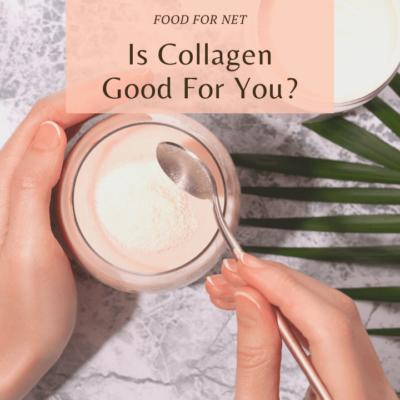

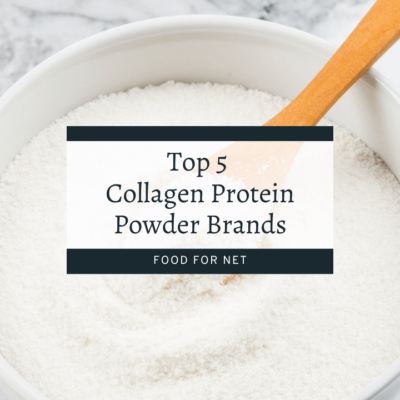

 5 Best Paleo Protein Powder Brands
5 Best Paleo Protein Powder Brands
Leave a Reply